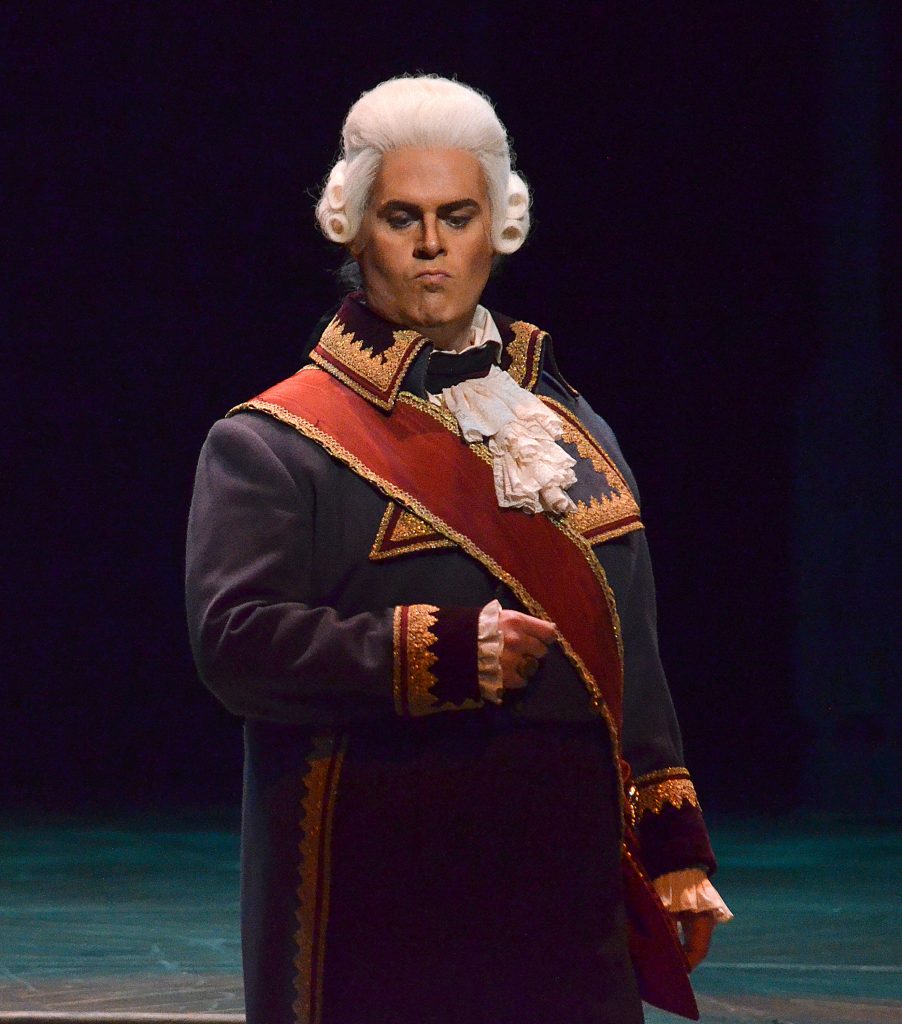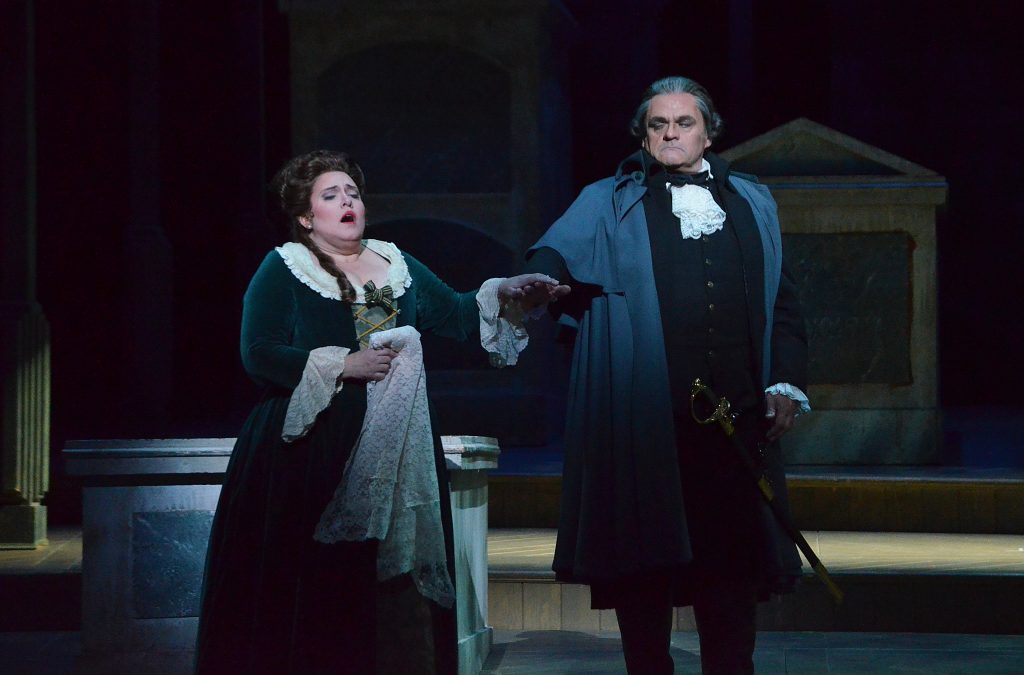
By Robert Croan
Antonio Somma’s libretto for Verdi’s A Masked Ball was originally based on the assassination in 1792 of Swedish King Gustav III. The political situation in Europe in the 1850s, however, was too volatile for the censors to pass on such a sensitive subject, so by the time the opera had its premiere in Rome in 1859, the locale had been moved from Sweden to colonial Boston, and Gustav III had become Riccardo, the Earl of Warwick.
Modern stage directors therefore have a choice of settings, characters – even of the leading character’s sexual orientation, since the real-life Gustav III was known to have been bisexual. Without being explicit, Somma created the character of Oscar, the king’s page (and possibly a lover), a male teenager portrayed by a female singer, in the tradition of Cherubino in Mozart’s The Marriage of Figaro. Oscar is, in fact, the only major “travesty” role in all the Verdi operas.
For Florida Grand Opera’s production, which concluded its Miami-Fort Lauderdale run in the Broward Center on Saturday, Italian director Marco Pelle staged the opera in its Swedish setting, opting for mostly traditional interpretations of the work’s characters and events. But while Pelle stuck to the book, for the most part, he added many small personal touches, making each of the principals react visibly in face and body to the events as they unfolded.
Moreover, the director recognized that unlike most Verdi operas, A Masked Ball, while serious in its subject matter, is structured like an opera buffa. Most of the arias, as well as the big Act 2 love duet, are serious, but the ensembles are pure comic opera or even operetta-like in style. Given different words, they could pass for Gilbert and Sullivan, and indeed, were part of the tradition that the British team, a few decades later, chose to parody.
With this is mind, it made perfect sense for the nobles to burst into a jolly dance at the end of the opening scene, when they decide to get into disguise and visit the sorceress Ulrica. At the other end of the spectrum, Pelle made Amelia’s terror at being unveiled in a tryst with her husband’s best friend, quite terrifying – simultaneously maintaining the comic aspects of the courtiers relishing the gossip that this incident would spawn.

Alexandra LoBianco and Todd Thomas in Un Ballo in Maschera. (Photo by Lorne Grandison)
As is its custom, FGO double cast the largest principal roles, in this case the soprano-tenor duo of illicit-but-innocent lovers, Amelia and Gustavo. As Amelia, in love with Gustavo but physically, at least, faithful to her husband – Count Anckarström – Alexandra LoBianco was second cast, but certainly not second-rate. This is a singer with a big, juicy voice that could ride the swelling orchestral climaxes with ease. She soared thrillingly in the high arched phrases.
Equally, she could scale down her sound to produce exquisite pianissimi and all shades of vocal color to define the meaning of a phrase or the inner feelings of the protagonist. She had a bit of a stretch negotiating the tricky cadenza of her first aria lying flat on her back over a tombstone, but delivered her Act 3 exhortation about seeing her son for the last time with gorgeous tone and emotional conviction.
Tenor Jonathan Burton, the second cast Gustavo, was stiffer in demeanor, and his bright, well-produced tenor sound is just a shade too small for Verdi’s grandest moments. Still, he showed no signs of strain until the character’s stentorian outburst just prior to the final scene at the ball, and he made much of Gustavo’s lighter lines in the scene in the witches dwelling, when he must deny Ulrica’s dismal prophecy of his impending death.
This opera’s most familiar single segment goes to the baritone, however: “Eri tu,” a moving lament over betrayal by his best friend. Todd Thomas as Count Anckarström had the vocal equipment to deliver the musical lines effectively, as well as the artistic intelligence to delineate the conflicting sentiments.
Musical values, with the orchestra solidly in control under conductor Ramón Tebar, were strong throughout. Ensemble work was crisp and precise, and the chorus exuded resonant tone while acting for the most part, like credible individuals.
In her single scene, Dana Beth Miller made a profound impression as Ulrica, her deep contralto matched by a commanding stage persona. Elena Galván’s light high soprano was shrill-toned, but her coloratura was right on the mark, and she acted the saucy page with vitality. At the lower end of the gamut, basses Calvin Griffin and Alex Soare not only sang the lines of the two conspirators with ring and menace, but managed to convey a relationship that made some differentiation in character between these two cardboard stereotypes.